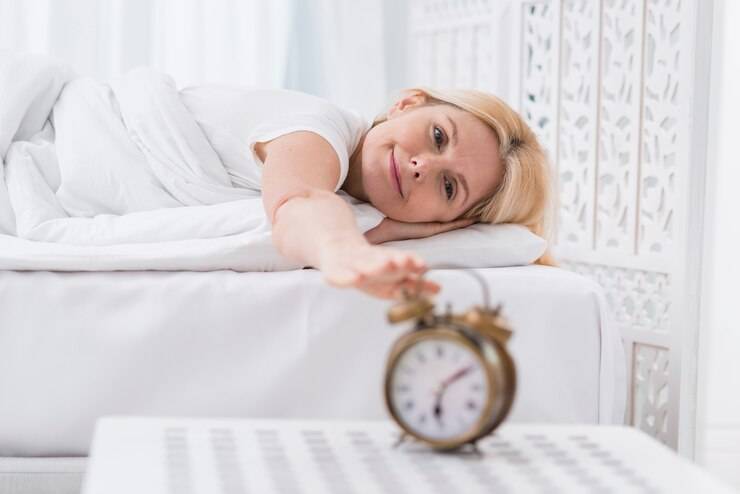
The Best Time for Sleep 10pm To 4am ? The Right Answer.
admin
- 0
- 8
The Best Time for Sleep is between 10 pm and 11 pm. This timeframe aligns with the body’s natural circadian rhythms, promoting restorative and quality sleep.
Finding the right time to sleep is crucial for maintaining overall well-being. Our body’s internal clock, known as the circadian rhythm, regulates sleep-wake cycles based on external cues like daylight and darkness. These rhythms are essential for promoting deep, restful sleep and helping the body rejuvenate.
The optimal time for sleep falls within the 10 pm to 11 pm window, coinciding with the body’s natural inclination to wind down for the night. Understanding and following this natural pattern can lead to improved sleep quality and overall health. Let’s explore the importance of aligning sleep patterns with circadian rhythms and how they can positively impact our well-being.

Table of Contents
ToggleUnderstanding Circadian Rhythms Time Is for Sleep
Our bodies operate on a unique internal clock that influences our sleep-wake cycle, known as the circadian rhythm. Every individual has a varied circadian rhythm, indicating the specific time of day when they feel the most alert and productive, as well as when they feel drowsy or fatigued. Understanding circadian rhythms is crucial in determining the best time for sleep, as it aligns with the body’s natural processes, ultimately impacting sleep quality.
Human Sleep-wake Cycle
The human sleep-wake cycle is regulated by the circadian rhythm, a natural, internal process that regulates feelings of sleepiness and wakefulness over 24 hours. The cycle is influenced by the light-dark cycle, where exposure to light and darkness signals the brain to release hormones that dictate when it’s time to sleep or wake up.
Impact Of Circadian Rhythms On Sleep Quality
Circadian rhythms play a significant role in determining the quality of our sleep. If we align our sleep schedule with our circadian rhythm, we are likely to experience deeper, more restful sleep. However, disrupting the circadian rhythm, such as through irregular sleep patterns, can lead to disrupted sleep and overall reduced sleep quality.
Role Of Melatonin In Sleep
When it comes to understanding the factors that influence our sleep patterns, the role of melatonin cannot be overlooked. Melatonin is a hormone that plays a crucial role in regulating the sleep-wake cycle. Understanding how melatonin production and secretion and its influence on sleep patterns can help optimize the timing and quality of our sleep.
Melatonin Production And Secretion
Melatonin is primarily produced and secreted by the pineal gland, a small gland in the brain. The production of melatonin is influenced by the body’s internal clock, also known as the circadian rhythm. Typically, melatonin levels begin to rise in the evening as it gets dark, signaling to the body that it is time to prepare for sleep. The secretion of melatonin is inhibited by exposure to light, which is why it is important to limit exposure to bright lights, especially blue light from electronic devices, before bedtime to support healthy melatonin levels.
Influence Of Melatonin On Sleep Patterns
Melatonin plays a significant role in regulating sleep patterns by promoting feelings of drowsiness and reducing body temperature, both of which are essential for initiating and maintaining sleep. When melatonin levels rise in the evening, it signals to the body that it is time to wind down and prepare for rest. By aligning our activities with the natural rise and fall of melatonin, we can optimize our sleep quality and overall well-being.
Best Time To Go To Bed
Getting the right amount of quality sleep is essential for maintaining good physical and mental health. And one of the crucial factors that influence the quality of sleep is the time we go to bed. Let’s explore when is the best time to go to bed and the factors that affect it.
Recommended Bedtime For Adults
For most adults, the recommended bedtime is typically between 9 PM to 11 PM.
Factors Affecting The Ideal Bedtime
- Circadian Rhythm: The internal body clock that regulates the sleep-wake cycle. It influences the time when we feel most alert and when we start to feel drowsy.
- Age: Younger adults may feel more rested with a later bedtime, while older adults often benefit from an earlier bedtime.
- Work Schedule: Shift workers or individuals with irregular work hours may have difficulty establishing a consistent bedtime.
- Lifestyle: Factors such as exercise routine, screen time, and stress levels can impact the ideal bedtime.
It’s essential to recognize that the ideal bedtime varies from person to person and is influenced by individual circadian rhythms, lifestyle, and environmental factors.
Importance Of Waking Up At The Right Time
Waking up at the right time is crucial for overall well-being. It sets the tone for the day, impacting energy levels, productivity, and mental clarity. Understanding the importance of waking up at the right time can significantly improve your quality of life.
Impact Of Waking Up Early On Overall Well-being
Waking up early has a profound impact on a person’s physical and mental well-being. It allows for a more structured and productive day, giving ample time for exercise, a healthy breakfast, and effective planning. Early risers enjoy better mental focus and are generally more proactive in their approach to daily tasks. This sets a positive tone for the day, leading to higher levels of satisfaction and reduced stress.
Strategies For Regulating Wake-up Time
- Establish a consistent sleep schedule: Set a regular bedtime and waking time, even on weekends, to maintain a stable sleep-wake cycle.
- Create a calming bedtime routine: Engage in relaxing activities like reading or meditation to prepare the mind and body for sleep.
- Avoid stimulants before bed: Limit caffeine and electronic device usage before bedtime to promote better sleep quality.
- Optimize your sleep environment: Ensure your bedroom is conducive to restful sleep by controlling noise, light, and temperature.
- Expose yourself to natural light in the morning: Natural light exposure helps regulate the body’s internal clock and supports a healthy wake-up time.
Optimizing Sleep Schedule For Better Health
Getting quality sleep is essential for overall well-being, and optimizing your sleep schedule can significantly impact your health. By creating a consistent sleep routine and adapting to individual sleep needs, you can enhance the quality and duration of your sleep, leading to improved physical, mental, and emotional health.
Creating A Consistent Sleep Routine
Establishing a consistent sleep routine is crucial for promoting healthy sleep patterns. By going to bed and waking up at the same time every day, you can regulate your body’s internal clock, also known as the circadian rhythm. This consistency helps train your body to recognize when it’s time to sleep and when it’s time to wake up, leading to a more restful and rejuvenating night’s rest. It’s important to prioritize setting a regular sleep schedule and sticking to it, including on weekends, to maintain a healthy sleep routine.
Adapting To Individual Sleep Needs
Understanding your sleep needs is vital for optimizing your sleep schedule. Not everyone requires the same amount of sleep, and it’s important to recognize and respect your sleep patterns. Listening to your body and paying attention to signs of fatigue or alertness can help you determine your optimal sleep duration. Additionally, considering factors such as age, lifestyle, and overall health can help you personalize your sleep schedule to meet your specific needs.
“`
Whether you’re a night owl or an early bird, prioritizing a consistent sleep schedule and adjusting it according to your individual needs can make a significant difference in the quality of your sleep and overall health. By embracing these practices and making sleep a priority, you can optimize your sleep schedule to promote better health and well-being.
Frequently Asked Questions On Which Time Is Best For Sleep?
What Is The Best Time To Sleep For Optimal Health?
The best time to sleep for optimal health is between 10 pm and 7 am. This schedule aligns with the body’s natural circadian rhythm, allowing for better sleep quality and overall well-being.
Is It Better To Sleep Early Or Late For Overall Health?
It’s better to sleep early, as the body’s biological clock is designed to follow a natural sleep pattern. Going to bed early and waking up early helps regulate hormones, improve mood, and support overall health.
How Does The Timing Of Sleep Affect The Body’s Internal Clock?
The timing of sleep affects the body’s internal clock, known as the circadian rhythm. Sleeping at consistent times helps regulate this cycle, promoting better sleep quality, hormonal balance, and overall health.
Conclusion
In determining the best time for sleep, it’s essential to prioritize individual sleep needs and overall health. Understanding one’s circadian rhythm and optimizing sleep hygiene practices can significantly impact sleep quality and overall well-being. It’s crucial to prioritize consistent sleep patterns and create a bedtime routine that aligns with personal sleep preferences for a restful and rejuvenating night’s sleep.



